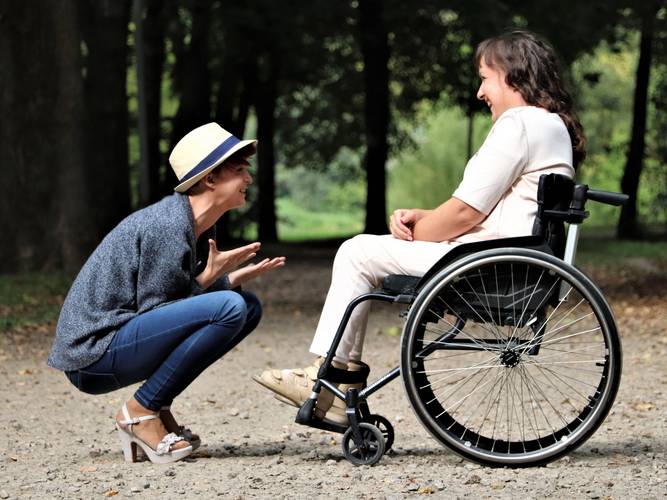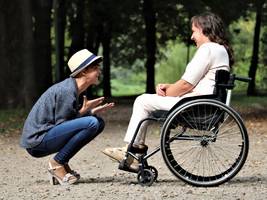If decisions on people’s rights are not explained in a way that is comprehensible and thus enables efficient filing of legal remedies, then this is not compliant with the provision of Article 22 of the Constitution of the Republic of Slovenia. The Ombudsman asked the Ministry of Labour, Family, Social Affairs and Equal Opportunities to state its position regarding the Ombudsman’s opinion in a specific decision-making procedure regarding the complainant’s complaint.
* * *
A complainant, who disagreed with the decision of a social work centre (Centre) regarding the right to personal assistance, contacted the Human Rights Ombudsman of the Republic of Slovenia (Ombudsman). In connection with the decision, he had already filed a complaint. The Ombudsman explained to him that the Ministry of Labour, Family, Social Affairs and Equal Opportunities (MDDSZ) will have to decide on his complaint. Relating to the content of the contested decision, the Ombudsman submitted its opinion to the MDDSZ from the viewpoint of protection of human rights and fundamental freedoms as per the provision of Article 25 of the Human Rights Ombudsman Act. In its opinion, the Ombudsman highlighted that it is evident from the contested decision that it was based on an expert opinion on the number of hours and content of personal assistance (opinion), from which it arises that the complainant is not eligible for personal assistance. The contested decision does not include a detailed explanation and the Ombudsman believed that the opinion was also part of the decision’s explanation.
It arises from the opinion that the complainant needed assistance with various tasks in the form of a helper, when overcoming long distances in a wheelchair and with various physical assistance tasks. The members of the committee assessed that the complainant did not require personal assistance in the scope of at least 30 hours a week.
According to the Ombudsman, it is not evident from the opinion and subsequently from the Centre’s decision how the final assessment on the required number of hours of assistance was made. The specific activities for which the complainant required assistance were established, but not the time range these activities represent.
In this specific case, the Ombudsman believed that the Centre’s decision was contrary to the provision of Article 22 of the Constitution of the Republic of Slovenia, which stipulates that decisions must be substantiated in a way that makes it possible to understand why and how a decision was made and also enables efficient filing of legal remedies. The Centre’s decision cannot meet the legal standard of a reasoned decision, which stipulates that an official authority must define the reasons on which their decision is based and do so in a specific manner and with sufficient clarity. The reasoning of a decision is an independent and autonomous element of the right to a fair trial which is provided by Article 22 of the Constitution, as part of the right to equal protection of rights. It has the original value of providing an insight into the reasons for a decision, particularly for the party who was not successful in the procedure of deciding on their right, obligation or legal interest. To ensure human rights to a fair trial and trust in the rule of law, it is of great importance that the party, especially if they were not successful in the procedure, learns of the reasons for the decision regarding their right, obligation or legal interest. Sufficient reasoning is also a condition for testing the reasonableness of the adopted decision.
As per Article 7 of the Human Rights Ombudsman Act (ZVarCP), the Ombudsman proposed that the MDDSZ state its opinion regarding the specific decision-making procedure about the complainant’s complaint. The MDDSZ initially rejected the Ombudsman’s proposal without an explanation, but later accepted the proposal after a meeting in person. The Ombudsman also presented its position regarding the need for sufficient clarity of reasoning to the Social Protection Institute of the Republic of Slovenia, which is the expert body as per the Personal Assistance Act and provides expert opinions for the decision-making needs of social work centres, whereby such opinions also represent de facto decisions on matters. The Ombudsman will continue to monitor this issue. 9.6-29/2022

